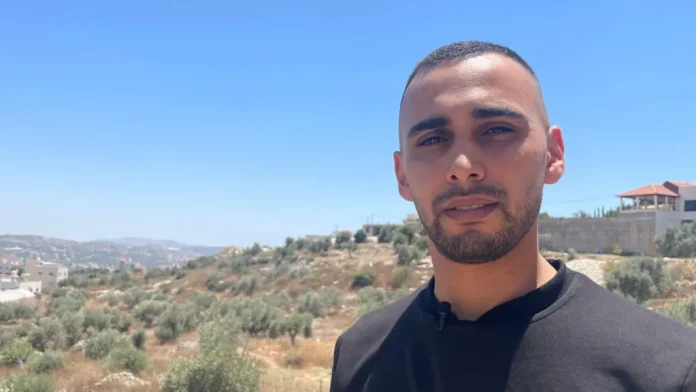West Bank, a series of disturbing incidents involving Palestinian men and Israeli soldiers have come to light, sparking international concern and condemnation. These incidents, reported by the BBC and corroborated by multiple eyewitness accounts, depict a harrowing sequence of events during a military operation in Jabariyat, near Jenin.
The focal point of these reports is the treatment of several Palestinian men, including Mujahid Abadi Balas, Samir Dabaya, and Hesham Isleit, who allege that they were subjected to severe mistreatment by Israeli forces. The initial footage of Mujahid Balas clinging to the bonnet of an Israeli army jeep triggered widespread outrage. Subsequent testimonies from Samir Dabaya and Hesham Isleit corroborate similar experiences of being forcibly placed on the same military jeep after sustaining injuries.
Samir Dabaya, currently hospitalized in Jenin, recounted being shot in the back during the military operation and left bleeding for hours until soldiers approached him. He described being beaten and stripped of his trousers before being placed on the jeep. His account is supported by security camera footage showing him semi-naked on the vehicle marked with a clear number 1, consistent with the location of the operation.
Hesham Isleit shared a similar ordeal, stating that he was shot twice and subsequently forced onto the same jeep. He described the extreme pain of being placed on the hot metal surface of the vehicle, which felt like fire against his bare skin. His attempt to resist due to the unbearable heat was met with threats from the soldiers, insisting that compliance was his only option if he wanted to avoid further harm.
Mujahid Abadi Balas, who gained international attention after the initial video surfaced, recounted a brutal experience where he believed he would not survive. He detailed being beaten severely after being determined to be unarmed, then lifted, swung, and ultimately thrown onto the jeep. This account was corroborated by additional footage showing him being tossed onto the vehicle by soldiers.
The Israeli army, in response to these allegations, acknowledged that the incidents were under review and stated that such actions were contrary to their stated values and protocols. They attributed the military presence in Jabariyat to the pursuit and arrest of wanted suspects, claiming that they had responded with live fire after being fired upon by “terrorists.”
All three men, despite being initially suspected of involvement in the conflict, were released promptly after identity checks revealed they were unarmed civilians. Their testimonies and the supporting evidence raise serious concerns about the treatment of civilians during military operations, particularly the alleged use of excessive force and degrading treatment.
This series of events has prompted calls for investigations into potential human rights violations and breaches of international law. The testimonies of Samir Dabaya, Hesham Isleit, and Mujahid Abadi Balas underscore the urgent need for accountability and transparency in military operations conducted in civilian areas.
The reported incidents in Jabariyat are a stark reminder of the ongoing tensions and human rights challenges in the Israeli-Palestinian conflict. The international community’s response will be crucial in ensuring that such incidents are thoroughly investigated and that steps are taken to prevent similar occurrences in the future. The voices of those affected by these events must be heard, and their rights protected under international law.























